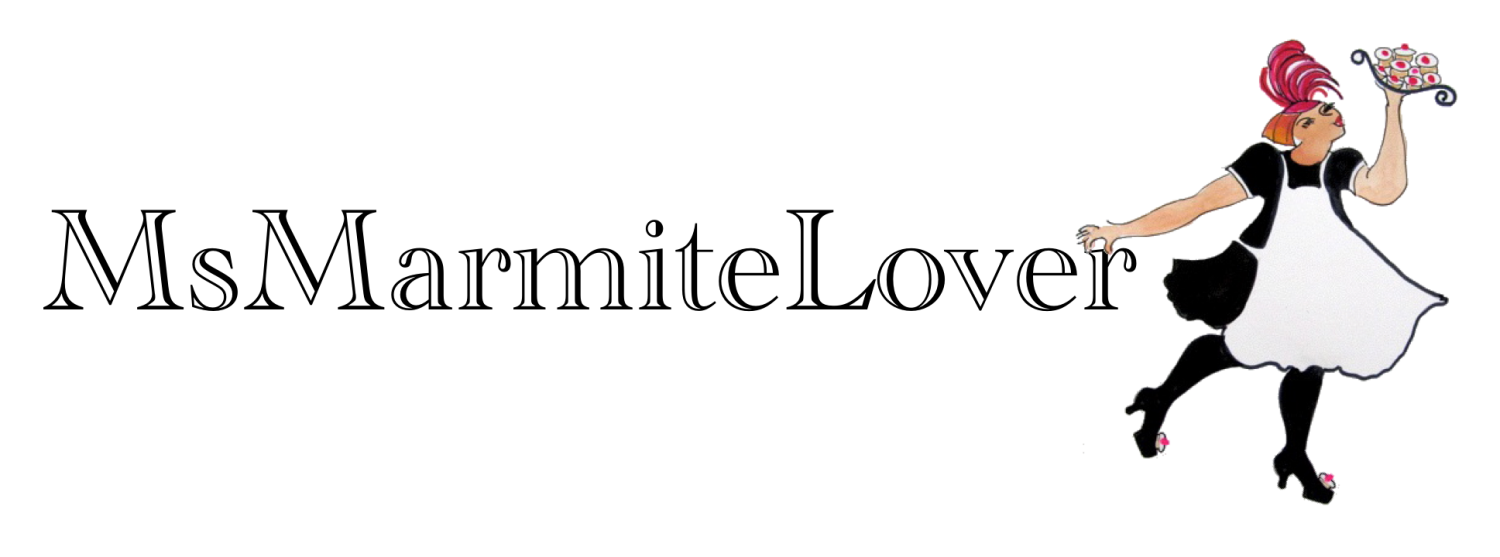In October The Observer Food Monthly awards celebrated their tenth anniversary. They did a special issue on the top ten chefs of the decade. There was one woman, in second place, Nigella Lawson, who, strictly speaking, isn’t a chef but a very influential cook and food writer.
In the World’s 50 best Restaurant awards, there are no female chefs in the top 50. In fact, such is the paucity of females, they are obliged to have a ‘World’s Best Female Chef’ award, whose restaurant is never in the top 50. This year it was Nadia Santini of Dal Pescatore in Italy, whose restaurant listed at number 74. So the world’s best female chef is worse than the 73 male chefs above her? This is the best we can do?
The November 18th issue of Time magazine has the cover story ‘Gods of Food: meet the people who influence how you eat’ with a list of 13 chefs, the lineage of protégés they have sprouted and not one woman.
Chef Amanda Cohen who runs the highly reputed New York vegetarian restaurant Dirt Candy has written a riposte in Eater.com in which she scornfully rips apart the Time magazine defence that a female chef is a recent phenomenon, that women are not entrepreneurial, and that women ‘really need someone — if not men, themselves actually — to sort of take care of each other’. The editor of Time magazine, a fellow named Howard Chua-Eoan, has defended his article saying that the media doesn’t have to advocate for anything, that if women chefs don’t kick up a fuss about this, don’t have strong enough networks to promote themselves, then it isn’t the media’s responsibility to report on it.
So what are we going to do about this?
It’s a fact that full-time female professional chefs are still few. Reasons why include:
- the classic career arc which peaks around 35 which coincides when women have already exited or scaled down their hours in the workplace in order to have children.
- particularly long hours in kitchens, leaving little time to raise children.
- ageism in the media applied to middle-aged ‘returners’. Especially a media that values looks and youth in women above all else.
- women have less money than men, attract less investment for business projects such as heading their own restaurants.
But do not include:
- women simply can’t cook as well as men at high level.
- women are less creative than men.
- women don’t work as hard as men.
- women are physically weaker than men, can’t carry heavy pots, work long hours. Women have a different kind of physical strength, but do well on endurance.
- have poorer palates. (In fact the opposite is true, for women have a better sense of smell)
What is a chef?
Nigella Lawson isn’t a chef but a cook. Most women are cooks but not ‘chefs’. 99.9% of the world’s dinners are cooked by women. I’m never sure whether to call myself a chef, because I don’t run a traditional restaurant, (although I’ve run lengthy and large budget pop-up restaurant projects) however I do everything in the last two points below, as well as cooking the food. Often when I’ve run big projects, I do feel intimidated by the male chefs I’ve hired. Confidence is an ongoing issue.
- Is a chef someone that has a traditional restaurant?
- Is a chef someone who cooks for the paying public?
- Is a chef someone who has responsibility for ordering, constructing menus, organising the entirety of the meal while a cook is someone who just cooks?
If women tend to be cooks rather than chefs, it’s no surprise that they don’t make the cheffing/restaurant lists. Cooking, the traditional domain of women, has had a similar trajectory to midwifery. The minute an occupation becomes professional, something you can earn money for, men take over.
Is the media a help or a hindrance?
‘It’s really only the press who seem to feel that having a restaurant and a vagina is some kind of bizarre dual ownership situation.’ Amanda Cohen.
Print media tend to only only feature female chefs/cooks who are on TV or who look good in fashion spreads (which amounts to the same thing). All media does this, but it’s a shame that women’s magazines in particular do not show more female solidarity. Very few women’s magazines feature women over 35 unless they are already celebrities. The amount of times that women’s mags have got in touch with me for a feature, only to say no when they discover I’m over 40. The women that run these publications are, I assume, under pressure from advertisers to only feature certain types of women. It’s a vicious circle.
Do women like to compete?
“The only real stumbling block is fear of failure. In cooking you’ve got to have a what-the-hell attitude.” Julia Child
Women are less socialised to compete. Men are far more comfortable with it, entering, having a go and shrugging it off if they lose. So in the YBFs awards, maybe women chefs simply aren’t entering the competition? We are socialised to enable others. There are exceptions in public life like broadcaster Janet Street-Porter and writer Jeanette Winterton who will say upfront without any false modesty ‘I’m really good at what I do’ but when we hear them say it, it is still quite shocking.
Several headmistresses of high ranking girl’s schools have commented on the feminine reluctance to compete, and to boast about their achievements. We act like appeasers: we smile more than men, we aren’t comfortable with being disliked. Men want to impress while women want to please.
Do women chefs promote themselves sufficiently?
Is the editor of Time magazine correct when he says that women don’t help themselves, don’t agitate for prominence and status, don’t network in the same way as the chefs boys club?
Women undervalue themselves, both financially and status-wise. This will take time to change.
It’s a truism that high status careers are associated with men. The minute that women do them, the job is less valued.
Finally who really influences what we eat?
Is it Michelin-starred chefs? (who are the whale hosts to the restaurant industry barnacles such as restaurant critics and PR’s) Is it food media such as TV chefs/food writers/columnists/cookbook authors/bloggers? Or is it more basic, we eat what supermarkets, their suppliers, the price of food provides? What is the starting point?
Top award winning chefs are a bit like couture houses: they come up with some avant-garde ideas that are hard to achieve at home. You often need specialist equipment to make their dishes. Eventually, the price of the specialist equipment drops, the award winning chef writes a home cooking version of their innovative recipe or technique and finally it filters through to the home. So this is a trickle down scenario.
But is the average housewife, who cooks dinner for her family, influenced by these alpha male chefs? Sure, perhaps eventually but somewhat remotely. She would be more influenced by world markets, the weather, what the country she lives in produces, availability, transport, traditional and regional recipes, in terms of what she will put in her shopping basket. Most of all, the food that we end up eating is a balance between tastiness, ease of preparation, energy and price.
This whole discussion reminds me of the anguished articles in the music press in the 70s ‘can women play rock?’. Of course they can. But maybe it won’t be rock that gets them the hits. No one thinks nowadays that women cannot be successful in music. (Although the way they do this is very different from men, see whole Miley Cyrus debacle). Female influence in the food world will eventually emerge and be recognised by the media but they will do it in their way, which may or may not be in the macho restaurant industry.




Some very good points made! I'm all for seeing more female chefs in the industry! Come on girls!
Perhaps it's like parliament, they need to change the hours, the parameters of the job. I've tried to do that with creating the supper club/underground restaurant movement. Women chefs can still cook for money, run a restaurant, but do it on their terms
All true, I know I don't feel comfortable with self promotion at all. But we're here! Us women chefs! I swear! I know quite a few others too!
Absolutely Carolyn. I hope your new vegan restaurant http://blackcatcafe.co.uk is successful, I will be coming in to visit.
An insightful dissection of many issues here from cheffing to the media's aversion to depicting any woman over 40, as you put it. Women 'chefs' – brilliant ones too – are however inhabiting the virtual world of cheffing via their blogs. I never want for inspiration after an hour's browsing of my favourite food blogs. I think you'll find food blog awards giving a high percentage of accolades to women. Your assessment is correct though and one I noticed with sadness in the career of an Italo-British chef Valentina Harris. She was the media-friendly doyenne of Italian cooking on the BBC food progs back in the early '90s and her regional Italian cooking book is still a much-thumbed tome on my shelf. All of a sudden, not even by osmosis, she disappeared from screens. It was as if all she'd achieved was wiped out. 20 years on, the likes of Giorgio Locatelli are doing the regional Italian thing – almost identikit. Now, I love Locatelli's work and programmes, but I am sure his name won't vanish as he ages. Valentina started out as a private chef, and now runs a lively cookery school venture. As her site's own biog says: 'you may also find her popping up on radio and television from time to time!'. But not that frequently, I'd say. Without a restaurant and Michelin Stars, her very valuable contribution to helping people understand Italian food was never going to be as noted as Locatelli's. Plus ca change.
I didn't realise that had happened to Valentina. What bullshit! It's like experienced men who know their craft but perhaps are no longer eye candy are allowed on telly but not women.
Food blog awards unfortunately are still judged by the mainstream media who a) rather resent bloggers b) have no understanding of the medium c) often vote in the latest gimmicky/newsy blog rather than bloggers that have pioneered the form, been doing it consistently well for years. Furthermore there are never any bloggers on the judging panels. Blogging divides down gender lines also: restaurant reviewing is by men, recipes are by women. Probably because male bloggers have more disposable income.
Very interesting article and so true what you say in your comments about male / female bloggers. I'm one if a small handful of male recipe bloggers but constantly get asked what my favourite restaurant is as though the person I'm speaking to about my blog assumes I'm a restaurant blogger ( which I find so dull) I honestly think the media has a lot to answer for and it takes us to buck the trend which I feel like I'm doing my bit!
I find restaurant reviewing dull too. It's hard work to make it interesting without just slagging the place off. Marina O loughlin does an amazing job.
Thanks for the thoughtful take on sexism in the food world – you have me thinking – and I'll be taking this to my students next week (ps. the first time i have ever left a comment on a blog- I'm a bit of a Luddite but have followed, silently, your thoughts for some years….)
Thanks Zoe. What are you teaching?